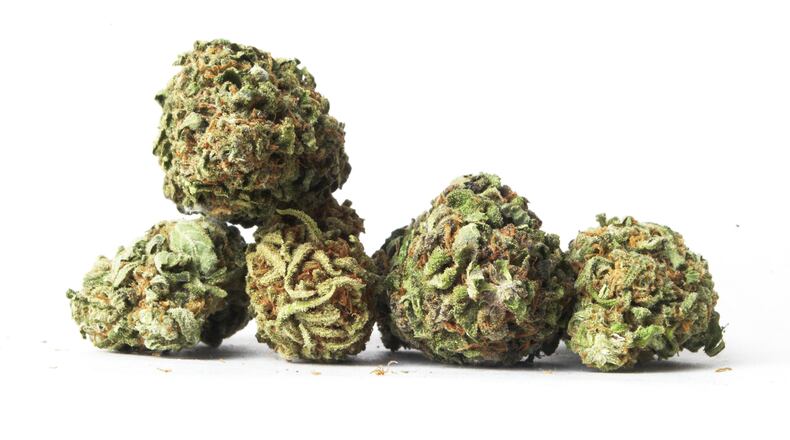Regardless of how Dayton electors vote, marijuana will still be illegal under state and federal law, and people caught with small amounts of marijuana in the city still could face consequences that really depend on how the city code is enforced.
RELATED: Dayton voters to decide whether to end penalties for marijuana violations
Decriminalization seeks to eliminate financial penalties and possible jail time for certain marijuana offenses.
Legalization would mean people who possess marijuana would face no consequences at all.
Decriminalization in essence means an activity is no longer considered criminal conduct and is treated as a civil infraction, according to the Canna Law Blog, which focuses on marijuana-related issues.
Legalization is lawfully regulating an activity that is no longer considered criminal conduct, the blog states.
The city of Dayton’s proposed steps to decriminalize include amending the city code to eliminate the $150 fine for minor misdemeanor and hashish offenses.
Right now, minor misdemeanor possession offenses involve less than 100 grams of marijuana.
Under city code, possession of between 100 and 200 grams of marijuana is a fourth-degree misdemeanor, punishable by fine and up to 30 days in jail. Possession of more than 200 grams of marijuana is a felony under state law.
MORE: Recreational marijuana closer to Ohio ballot — but lots of work ahead
Dayton’s decriminalization proposal includes classifying the possession of drug paraphernalia used only for marijuana or hashish as a minor misdemeanor offense, subject to no fine.
Also, the city would likely amend the code to classify a gift of 20 grams or less of marijuana as a minor misdemeanor offense. These offenses can result in higher-level misdemeanor charges.
If the November ballot measure passes, the city functionally would remove penalties for people who possess small amounts of marijuana, but laws for trafficking of the drug would still be in effect, officials said.
MORE: Recreational marijuana closer to Ohio ballot — but lots of work ahead
What would the next attorney general do about it?
The two men running for Ohio attorney general this year have widely differing responses to Dayton’s effort to decriminalize marijuana possession.
Democrat Steve Dettelbach, a former federal prosecutor, said: “Most evidence shows that current marijuana laws have disproportionally hurt communities of color. That’s one of the reasons that Ohioans have just decided to change those laws. I respect the right of local authorities and police officers to make decisions about the matters that impact their communities. We should all be listening to those voices more in a statewide discussion about the future of marijuana in Ohio.
“As a career federal prosecutor who has worked to take drugs off the street, I know this is an area where the details matter and a thoughtful approach is critical.”
Republican Dave Yost, a former county prosecutor and current state auditor, said: “A city cannot make legal what the state has made illegal. Does Dayton think it can also legalize prostitution?”


